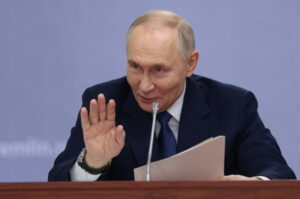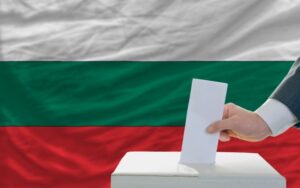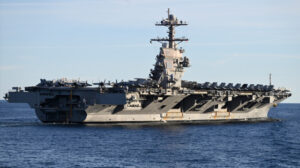The US will face “dangerous consequences” if it continues to militarily support Ukraine, said Foreign Minister Sergey Lavrov. Instead, he continued, the US could support the Russian plan to end the war, which cedes Ukrainian territories to Moscow.
In an interview with Newsweek, the Russian minister emphasized that his country is presenting a “viable plan” to end the bloodshed in Ukraine and to renew Europe’s security architecture.
Lavrov also accused NATO, led by the US, of sowing the seeds of war for the first time a decade ago and continues to stoke the fires behind the scenes.
Russia, he said in the interview, “is open to a political-diplomatic settlement that should eliminate the deeper causes of the crisis. It should aim to end the conflict rather than achieve a ceasefire.”
But what does the Russian proposal entail? In practice, nothing that has not been heard so far from the Russian side.
Ukraine would cede the occupied provinces of Donetsk, Kherson, Luhansk, and Zaporizhia (all parts of Ukraine’s territory), which were officially annexed by Moscow following an internationally disputed referendum in September 2022. Russia is also demanding the cession of Crimea, which was seized by Russia and annexed through a similar vote in 2014.
On the other hand, Kyiv must agree to abandon its efforts to join NATO and take measures that (today) are rejected by Ukrainian President Volodymyr Zelensky and his international supporters, including the US.
“For now, as far as we can see, the restoration of peace is not part of our opponent’s plan. Zelensky has not revoked his decree that bans negotiations with Moscow,” Lavrov commented to the American media outlet.
He also emphasized that Ukraine’s Western allies are discussing giving the green light to strike deep into Russian territory with Western weapons. “Playing with fire in this way can lead to dangerous consequences,” he said.
In fact, Russia’s demands are at the opposite end of what Kyiv and the Western countries aligned with it are asking for: Ukraine demands the unconditional withdrawal of Russia from Ukrainian territory.
Lavrov sees a broader dimension in the Russian proposals for ending the war.
“What we have in mind is that the global order must adapt to current realities,” he said, explaining that “the shift toward a multipolar world order is a natural part of the power rebalancing, which reflects objective changes in the global economy, finance, and geopolitics. The West waited longer than others; however, it has also begun to realize that this process is irreversible.”
As for the American elections and the options for the new US president starting in early 2025, Lavrov said that Moscow does not consider this parameter. “In general, the outcome of these elections makes no difference to us, as both parties [in the US] have reached a consensus regarding how to deal with our country,” said Lavrov.
He concludes with something resembling advice to American voters: “In general, it would be natural for those in the White House, regardless of who they are, to deal with their domestic affairs instead of seeking adventures tens of thousands of miles away from American shores. I am sure that US voters think the same way.”
Ask me anything
Explore related questions





